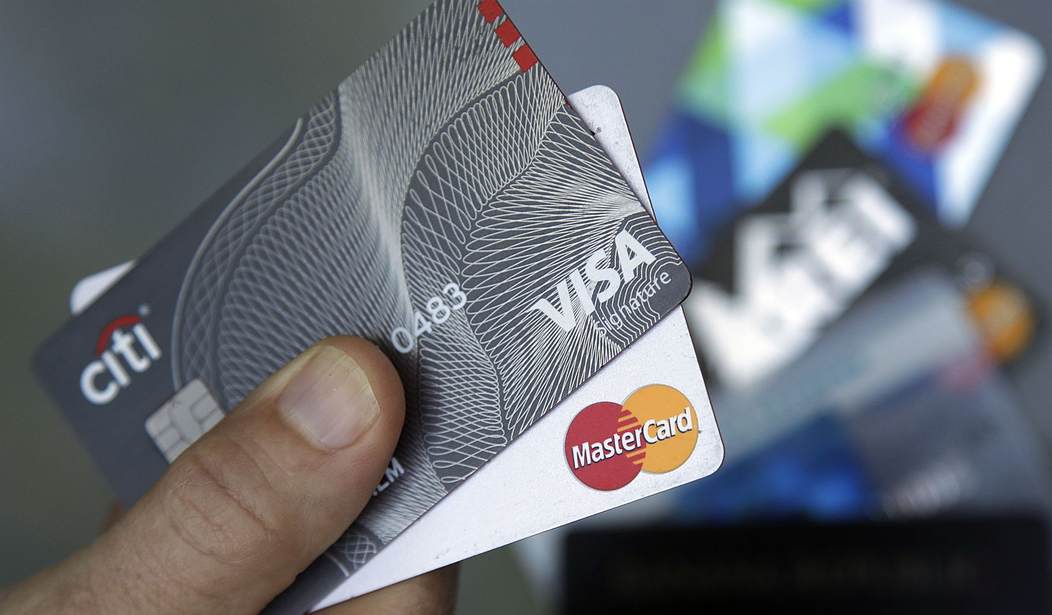The absolute last place you want to see someone practicing sleight of hand is when they have your credit card.
Alas that’s exactly what a bipartisan group wants to do with millions of Americans’ credit card benefits, hoping to distract us with some nice-sounding words about reform and affordability, all so they can service mega-retailers.
Earlier this year, a group of otherwise ideologically different senators – Dick Durbin (D-IL), Roger Marshall (R-KS), Peter Welch (D-VT), and JD Vance (R-OH) – introduced S.1838, the Credit Card Competition Act of 2023. It purports to, among other things, prohibit credit card issuers from “imposing certain limitations on the routing of electronic credit transactions, such as through penalties for failure to meet a specified threshold of transactions on a particular payment card network.”
Basically, what it would do is force banks to provide a minimum of two payment networks for mega-retailers handling electronic credit card transactions, which would have devasting outcomes for millions of Americans who can’t afford to have their pennies pinched anymore in Biden’s economy: indeed, the very people the senators claim to be protecting.
This bill will end the credit card reward programs for the millions who rely on them – like frequent flyer mile incentives – while simultaneously weakening vital areas like payment security and fraud protection.
But In typical Washingtonian fashion, Durbin and the others have branded the bill as friendly to small businesses, Main Street, and other little guys, but the people pushing it are anything but little. Indeed, in a classic example of “show me your friends and I’ll show you your character,” the Durbin-Marshall legislation is being driven by powerful and highly profitable retail industry special interests.
Recommended
Durbin-Marshall will line the proverbial pockets of the largest retailers while picking everyone else’s. If we follow the money, we can determine which of Durbin’s big box buddies really stands to gain the most from it.
The group leading the charge on this is the Merchants Payments Coalition (MPC), whose members include some of the largest corporations in the country like Walmart, Target, and Home Depot. Other members of this coalition include the National Retail Federation, National Association of Convenience Stores, National Restaurant Association, the Retail Industry Leaders Association, and Kroger. A review of lobbying records show they’ve dedicated $57.4 million to this shell-game, sleight-of-hand campaign to save themselves money for the millions of transactions they make every day – so that credit card companies can’t reward us.
The coalition also has close ties to other industry advocacy groups. The founder of the MPC, Doug Kantor, also serves as General Counsel and head lobbyist of the National Association of Convenience Stores while MPC’s spokesperson, J. Craig Shearman, was an executive for the National Retail Federation for 19 years.
I’m sure they stand to make a lot of money by ramming this legislation through Congress; I would prefer to keep getting frequent flyer miles from my credit card so I can still afford to fly in Biden’s economy.
To help push its flawed case that S.1838 helps the little guy, MPC is promoting the work of Accountable US, a left-wing campaign organization dedicated to “holding big business, government officials and special interests accountable.” Ironically, Accountable US, a fierce critic of Walmart, Target, and other big-box members of MPC, is supporting this wealth transfer from consumers to the very big box retailers it claims to watchdog.
Durbin introduced similar legislation last Congress; he also has another anti-credit card bill in the works this year – all part of his full-court press against normal people having access to modern financial resources. In 2010, Durbin likewise led a similar effort in Congress targeting debit cards, which ultimately passed as part of the objectively disastrous Dodd-Frank Act.
The collateral damage of the 2010 Durbin Amendment has been the people who can least afford it. It’s resulted in a massive increase in the unbanked population in the U.S. and led to the end of niceties like debit card rewards programs and no-fee checking accounts. Indeed, one 2015 economic survey by the Federal Reserve Bank of Richmond found “little evidence that merchants passed along their cost savings to consumers” from Durbin’s measures.
Please, Washington, don’t steal more of our money while pretending you’re doing the right thing. I’d much rather be robbed by sleight of hand artists who are at least honest about ripping me off.

























Join the conversation as a VIP Member